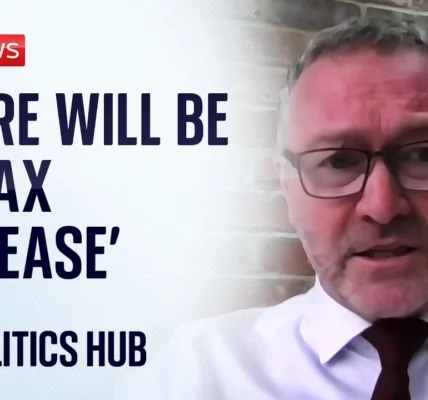Negotiating Lower Prescription Drug Prices and Economic Achievements

This article delves into the significant reforms regarding prescription drug pricing, the impact on seniors, and highlights the broader economic achievements under the current administration. We also explore the future outlook for American families and the workforce.
Introduction
In recent discussions surrounding healthcare affordability, the administration has made significant strides in negotiating lower prescription drug prices. A striking example is the reduction in insulin costs for seniors, which has dropped from as much as $400 per month to just $35. This change not only alleviates financial burdens on seniors with diabetes but also highlights the broader implications of healthcare reforms on the American economy and taxpayer savings.
The Impact of Prescription Drug Pricing Reforms
The recent legislative changes have reshaped the landscape of prescription drug pricing, particularly for seniors. Here are some of the key aspects:
Lower Costs for Essential Medications
- Insulin, a critical medication for diabetics, has seen price reductions from $400 to $35 monthly.
- The production cost for insulin is approximately $10, with retail expenses inflated without justification.
Annual Cost Caps for Seniors
Starting this January, legislation mandates that seniors’ total annual prescription drug costs are capped at $2,000. This cap includes even the most expensive cancer treatment drugs, which can cost upwards of $14,000 per year.
Broader Economic Benefits
These reforms not only serve to benefit seniors but are projected to save American taxpayers an estimated $60 billion over the next decade. This fiscal relief stems from reduced expenditures in Medicare, allowing funds to be reallocated to other critical areas.
Job Creation and Economic Growth
The current administration has prioritized job creation and economic recovery, resulting in substantial growth metrics:
Record Job Creation
Since the start of the administration, the economy has generated a record 16 million jobs, more than any previous presidential term. This includes:
- Over 700,000 manufacturing jobs created.
- A significant increase in the number of women in the workforce, recovering and exceeding pre-pandemic employment levels.
Economic Resilience Against Inflation
Despite predictions of recession, the economy grew by over 3% last year, with inflation rates decreasing. This growth is attributed to:
- Increased household incomes.
- Stronger balance sheets for American families.
Vision for Future Economic Policies
The administration’s vision for the future aims to continue building upon these successes by focusing on several key areas:
Affordable Housing and Childcare
Efforts to make housing and childcare more affordable are expected to boost economic growth further. This includes:
- Investing in the construction of affordable housing.
- Expanding access to affordable childcare options to support working families.
Healthcare Affordability
The administration is committed to lowering healthcare costs for all Americans, not just seniors. This includes:
- Continuing to negotiate lower prescription drug prices.
- Ensuring that healthcare remains accessible and affordable for all citizens.
Conclusion
In conclusion, the recent reforms in prescription drug pricing represent a significant step forward in making healthcare more affordable for American seniors and taxpayers. Coupled with robust job creation and a focus on future economic policies, the administration is working diligently to create a more equitable economic landscape. As we move forward, it is crucial for Americans to remain engaged and informed about these developments. For further reading on related topics, consider exploring our articles on healthcare reforms and economic policies.
“`




